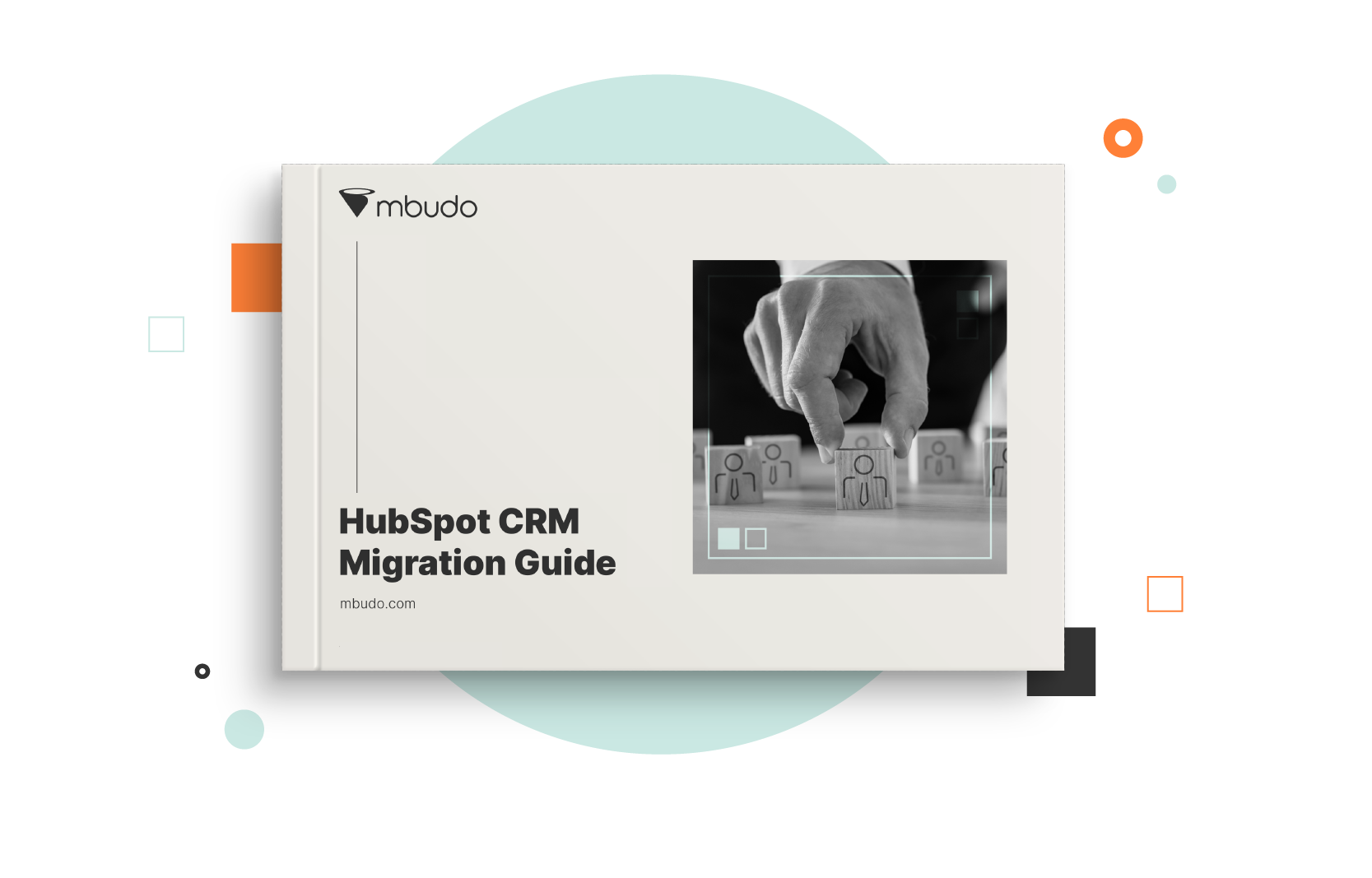
Did you know that a well-implemented CRM can yield a 245% ROI? Knowing How and When to approach your leads & customers in an effective way is essential to grow your business in a sustainable way..
As a marketing manager you are aware of the different outcomes that you or your team may experience when it comes to consistently delivering an optimized and personalized customer service.
This is why the need to gather all your customers data and outgoing deals in a centralized platform can make your life much easier. A CRM will provide you and your team an accurate record of all your prospects, leads and customers history, in only one click!
In this post we are going to explain why you should implement the HubSpot CRM platform and how to get the most out of it.
Why does your business need a HubSpot CRM?
The HubSpot CRM will enable you and your team to increase sales productivity by bringing a clearer overview of what’s actually going on with your business contacts, helping you understand how they are progressing within the sales funnel and customer journey and keeping history of all your contact records in your database.
Here are the 4 essentials of why you should have a HubSpot CRM:
 Centralized Data System: Having trouble to collect contacts data from different platforms, re-sending the same email to a contact or loosing track of an ongoing deal will not be a problem anymore after implementing the HubSpot CRM. As previously mentioned, you’ll now be able to easily access your contacts history with only one click.
Centralized Data System: Having trouble to collect contacts data from different platforms, re-sending the same email to a contact or loosing track of an ongoing deal will not be a problem anymore after implementing the HubSpot CRM. As previously mentioned, you’ll now be able to easily access your contacts history with only one click.- High Communication Performance: With the HubSpot CRM you will be able to assign specific contacts or deals to specific sales agents, you can activate internal notifications when an action has been taken by a contact in order to automatically send an email or open a Chabot conversation. You and your team will always know who has already spoken to a lead or what to cover during a meeting with a customer or prospect; all this information will be stored and available in the system.
- Improved Management: With the HubSpot CRM you’ll be able to track reps’ activities along with contacts interactions, you’ll be updated in real-time on deals evolution, which are your top engaged leads and which are the ones that need an extra push to help them progress in their buyer's journey. Thanks to the standardization and automation of procedures, management will be easier and faster, with the advantage of having more time to focus on strategic decisions for your business.
- Sustainable Growth: As your business scales, the need of a CRM to track interactions activities is more important. It could be ok to manually keep records of 5 or 10 customers, but what about 50 or 100? With the help of the HubSpot CRM you’ll have the perfect engine to achieve your goals in a sustainable, scalable and pragmatic way.
Now that you are starting to have an idea of why you should implement the HubSpot CRM, let’s look more in detail to how you can get the most out of it after Contact the following implementations...
Implementing Custom Properties in your CRM
Contact records are the center of your marketing strategy, every action they take towards your business you ‘ll need to be able to answer accordingly. Custom properties will help you register everything you know about your contacts, it can be basic information, like names or email addresses, but others will give you a more detailed picture about them, such as:
- Annual Revenue
- Industry
- Become a lead (date)
- Become a customer (date)
- Become an MQL (date)
- Become an SQL (date)
- Priority
and so on…
Thanks to the implementation of these custom properties, you’ll have a much clearer understanding of who your leads and customers are, in which lifecycle stage are they in, and how to meet and address their unique needs, as you’ll be able to segment contacts using any of the properties available
Moreover, you can also create custom properties for companies or deals to help you keep track of them and avoid missing an opportunity when it’s presented.
Implementing Sales funnels
As previously mentioned, following the implementation of contact properties you’ll be able to identify in which lifecycle stage your leads are, and with that information, you can use this implementation to have a clear view of your entire sales pipeline on an intuitive dashboard.
With the help of the HubSpot CRM you’ll nudge your contacts to a Sales funnel, you can sort won & lost deals, schedule appointments, track performance against quotas you’ve set, sort deals by company, names, amount, owner, etc.
And there’s more! Generating a clear overview of your sales pipeline is one thing, but it doesn’t stop there, the CRM will help you stay active constantly informing your sales and marketing teams with insights from multiple elements present in your database, such as:
- Follow up reminders
- Contacts assignations
- Conversion notifications
- MQL & SQLs notifications
Implementing sequences in your CRM
 By the implementation of sequences, you’ll be able to send a series of targeted, timed and customizable emails to your sales contact and nurture them overtime in an automated way, accelerating your sales cycles!
By the implementation of sequences, you’ll be able to send a series of targeted, timed and customizable emails to your sales contact and nurture them overtime in an automated way, accelerating your sales cycles!
Moreover, you can create tasks or internal notifications as a reminder to follow up with a specific contact. Once the desired action from the recipients has taken place, (in this case responding to the email) they will be automatically taken off the sequence.
You can create those sequences by using a mix of email templates and task reminders, customize the delay between the sequence steps so emails and tasks will execute only when you want them to.
You can also use workflows as another automated implementation to automatically enroll contacts to a list, companies, deals, etc.
Implementing Custom Reports
By implementing custom reports you’ll be able to better analyze objects and activities within your account.
Depending on your subscription you’ll be able to analyze and create different reports such as:
- Single object reports: analyze contacts, companies, deals, tickets, custom objects, activities, line items, or feedback submissions.
- Funnel reports: measure the conversion rates between certain stages in a customer's lifecycle or deal's pipeline.
- Custom report builder: it enables you to analyze objects in relation to marketing, sales, and service activities.
- Contact attribution reports: measure which sources, assets, and interactions impacted lead generation (Marketing Hub and CMS Hub Enterprise only).
- Deal create attribution reports: measure which sources, assets, and interactions impacted deal generation (Marketing Hub Enterprise only).
- Revenue attribution reports: measure which sources, assets, and interactions had the greatest impact on revenue (Marketing Hub Enterprise only).
These are just some examples of available implementations that we’ve decided to share within the HubSpot CRM. It’s clear that this is not only a contact management platform; it will help you and your organization to achieve strategic goals in a more effective and sustainable.
If you’d like to know more about HubSpot CRM and available implementations do not hesitate to contact a HubSpot Diamond partner like mbudo! We will be glad to help you.

Leo Fornasari
Leo is a graduated student on Business Management collaborating with mbudo on Inbound content and campaigns. He learns more about Inbound each day by gaining more HubSpot certifications. Leo is passionate about different cultures and he prides himself on his language skills, which are important for foreign business relations.
It may interest you
LATEST
BLOG POSTS
SUBSCRIBE TO MBUDO BLOG
And get your inbound news directly in
your inbox, once a month.


